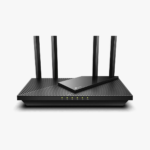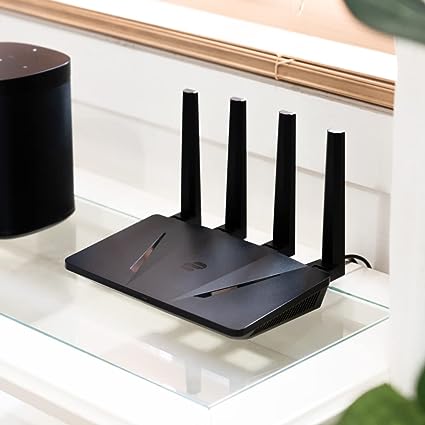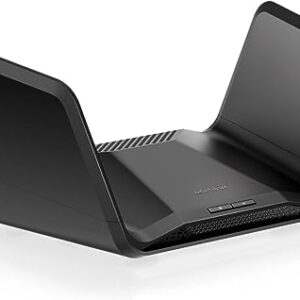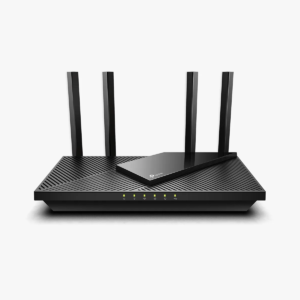Description
| Brand | ExpressVPN |
| Model Name | Aircove |
| Special Feature | Built-in VPN |
| Frequency Band Class | Dual-Band |
| Wireless Communication Standard | 802.11ax, 802.11ac |
| Compatible Devices | Laptops, Tablet, Desktops, Smart Television, Smartphone |
| Frequency | 5 GHz |
| Recommended Uses For Product | Home |
| Included Components | Router, Power adapter, Ethernet cable |
| Connectivity Technology | Wi-Fi, Ethernet |
This router has a built-in Virtual Private Network (VPN) service to protect your network traffic from prying eyes. You’ll need to buy an ExpressVPN subscription separately (it’s $13 a month, or just over $8 if you pay annually). But setup is simple, and having a router-level VPN is much easier than installing it on every device. An intuitive web panel makes it easy to group devices and select default servers. For example, you can set up TVs in one country and game consoles in another.
It’s worth noting that ExpressVPN isn’t our ultimate VPN guide as it was sold to a parent company with a poor reputation; this may matter to you if you are a person who wants a VPN. And while it’s an Aircove dual-band router that offers a range of up to 1,600 feet, the hardware is somewhat limited. During my tests, speeds peaked at around 400Mbps and were usually limited to 100Mbps by the VPN server. There are no advanced features like parental controls yet, although ExpressVPN plans to develop the platform further. And I ran into some annoying issues: Netflix would sometimes refuse to work because it detected me using an unblocker or proxy server (there is a battle between VPNs and streaming services). I’ve also noticed that I get repeated captcha requests in Chrome when using a VPN. However, installing a VPN on a router is quite technical, so something that works right out of the box will be tempting for people who prioritize VPN service.





Reviews
There are no reviews yet.